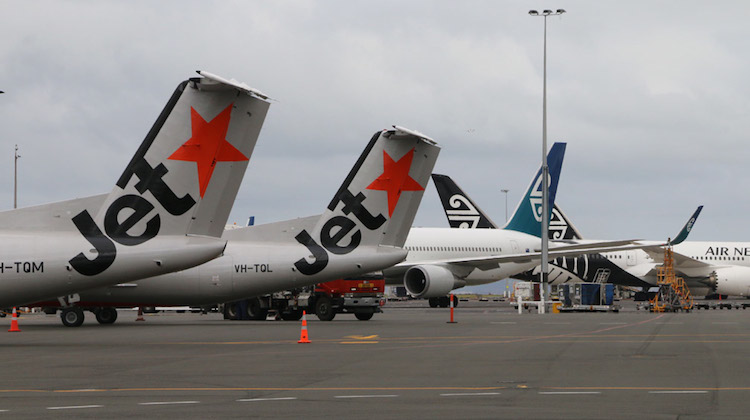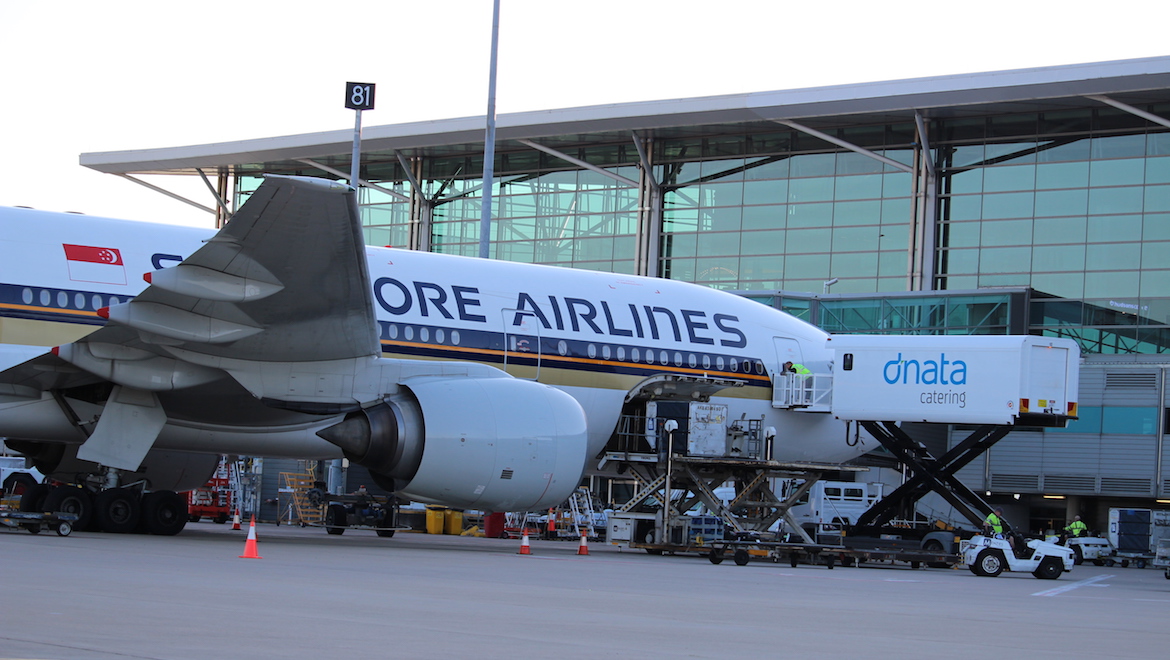
Jetstar chief executive Gareth Evans says the recently signed codeshare agreement between Air New Zealand and Qantas will have no impact on the low-cost carrier’s (LCC) operations in New Zealand.
On June 1, Air New Zealand and Qantas announced they would codeshare on each other’s domestic networks and offer reciprocal lounge access for eligible frequent flyers from October 28 2018.
The announcement came less than two months after Air New Zealand said it would walk away from its existing trans-Tasman joint-venture alliance with Virgin Australia when it ended in October.
Evans, who became the chief executive for the Jetstar group of airlines in Australia, New Zealand, Japan, Singapore and Vietnam in November 2017 as part of a leadership reshuffle, said the Qantas group was totally behind Jetstar New Zealand.
Further, the codeshare agreement, which covers 85 Qantas-operated Australian domestic flights and 30 Air New Zealand-operated New Zealand domestic flights, had been “designed in a way that there’s no impact on Jetstar New Zealand”.
“We’re fully committed to Jetstar in New Zealand,” Evans told reporters on the sidelines of the International Air Transport Association (IATA) annual general meeting in Sydney on Monday.
“It’s a very very important piece of the Jetstar jigsaw puzzle.
“This codeshare with Air New Zealand has been designed in such a way that effectively Jetstar New Zealand is insulated or carved out from it.”
There is no codesharing or cooperation on trans-Tasman routes.
#Qantas senior executives led by CEO Alan Joyce are hosting a media briefing for international aviation journalists at the #IATAAGM in Sydney pic.twitter.com/f6t4vjGPjL
— World of Aviation (@the_wofa) June 4, 2018
The Jetstar New Zealand domestic operation comprises a mix of Airbus A320s and Q300 turboprops serving nine destinations. The LCC is the only non-Air New Zealand option on the key trunk routes linking the major cities, as well as on a number of regional points from its Auckland hub.
Qantas already codeshares on Jetstar New Zealand’s domestic flights and that arrangement would remain unchanged post October 28 2018, Evans said.
Further, Jetstar New Zealand would be “preferenced over Air New Zealand on like-for-like time bands”.
“Having said that, the vast vast majority of Jetstar New Zealand’s customers are point to point customers anyway,” Evans said.
Evans said the Air New Zealand-Qantas codeshare deal did not necessarily mean Jetstar New Zealand was less likely to grow.
“This network is about getting people from A to B, not getting from A to C via B. So if we see great opportunities, and we’ve got fleet available then we’ll look to grow. That’s how we run the business,” Evans said.
“We are 110 per cent behind our operation over there.”
Virgin Australia said in response to the June 1 announcement the codeshare agreement was a bad deal for consumers.
And the Australian Airports Association (AAA) joined in the criticism on Monday and called for competition regulators in Australia and New Zealand to scrutinise the proposed tie-up to ensure it did not aversely impact the travelling public and Virgin Australia.
“It is essential the details of this agreement be publicly examined by the competition authorities to ensure it has no anti-competitive effects,” AAA chief executive Caroline Wilkie said in a statement.
“This is the only way to ensure competitive and affordable aviation markets in and between Australia and New Zealand and a visitor economy spanning the two countries that delivers to everyone the economic benefits associated with trans-Tasman travel.”
Joyce dismissed the AAA’s criticism of the codeshare deal.
“The monopolistic airports are worried about a monopoly where there isn’t a monopoly?” Joyce said in response to a question.
“I’m not sure that really holds any bearing whatsoever. These carriers are going to be very competitive and nothing’s changed.
“I only wished the airports were as competitive. If there is any way we can move Auckland right next to Sydney and Sydney right next to Auckland for a period of time then we might have some decent airports that charge a decent amount of money.”
The Air New Zealand-Qantas codeshare was also raised during the chief executives’ panel session at the IATA AGM on Monday afternoon featuring Air New Zealand boss Christopher Luxon alongside counterparts from Air Canada, Cathay Pacific, Emirates Airline and KLM Royal Dutch Airlines.
Moderator and CNN anchor Richard Quest said in his opening statement to Luxon: “My God you are promiscuous. You have barely got rid of Virgin Australia and you’ve moved in with Qantas”.
In response Luxon told Quest his comments were a “gross exaggeration as I could only expect from you”.
“That is not quite the truth,” Luxon said.
“The situation is that yes our alliance with Virgin has been terminated and that’s because we’ve got quite different interests on what we are trying to do on the Tasman.”
The CEO panel at the 2018 #IATAAGM being held in #Sydney features the bosses of #AirCanada Calin Rovinescu, #AirNewZealand Christopher Luxon, #CathayPacific Rupert Hogg, #Emirates Sir Tim Clark and #KLM Royal Dutch Airlines Pieter Elbers. Moderator is CNN’s Richard Quest pic.twitter.com/1bVDZ3MCWW
— World of Aviation (@the_wofa) June 4, 2018











